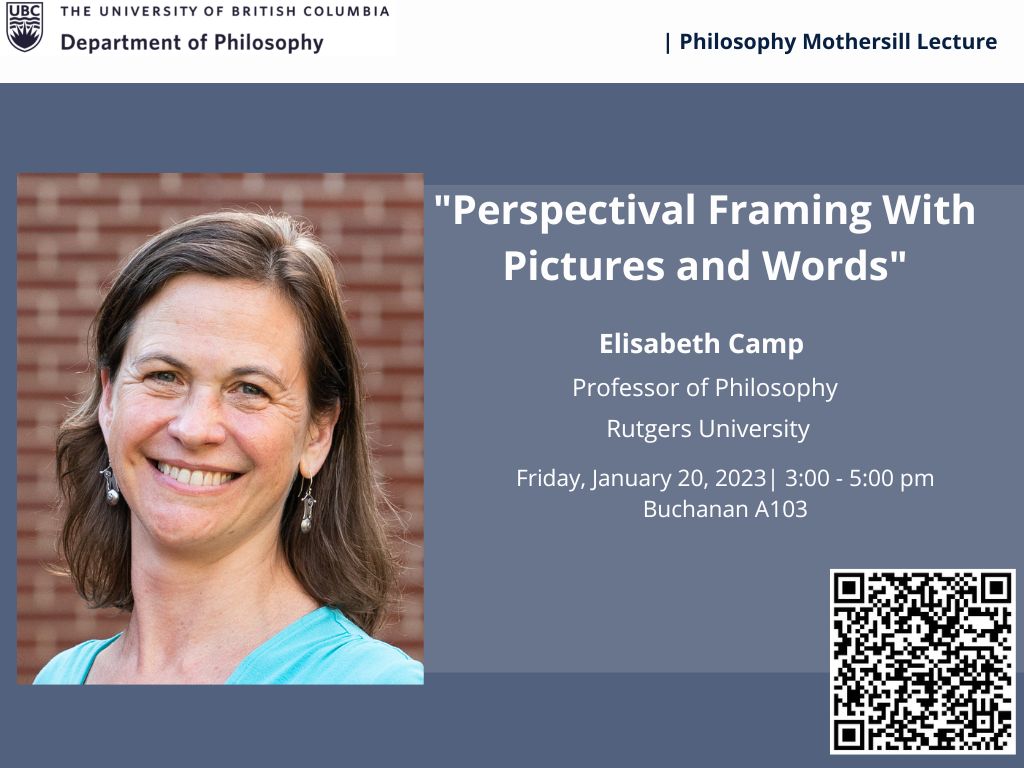
Download the handout: Handout
Talk Abstract:
We communicate through various media, and for various purposes. Pictures and words make meaning in different ways, which offer different imaginative and expressive profiles for communication. I explore three differences between imagistic and linguistic systems, in terms of what contents they can represent, how they express perspectives, and the force with which they present the perspectival contents they communicate; and I explore the ensuing aesthetic tradeoffs they present.
Speaker Biography:
Elisabeth Camp is Professor of Philosophy at Rutgers. She obtained her PhD from the University of California, Berkeley, held a post-doc at the Harvard Society of Fellows, and taught at the University of Pennsylvania before moving to Rutgers in 2013. She is the author of more than thirty articles in the philosophy of language, mind, and aesthetics. Her work especially focuses on thoughts and utterances that don’t fit a standard propositionalist model of minds and languages, including metaphor, maps, and animal cognition. Recent publications include an edited volume, The Poetry of Emily Dickinson: Philosophical Perspectives (Oxford University Press, 2021); “Language: Power Plays At The Edges Of Communication,” in Philosophy for Girls: An Invitation to the Life of Thought (OUP 2020)l and “Imaginative Frames for Scientific Inquiry: Metaphors, Telling Facts, and Just-So Stories” (in The Scientific Imagination, OUP 2019).